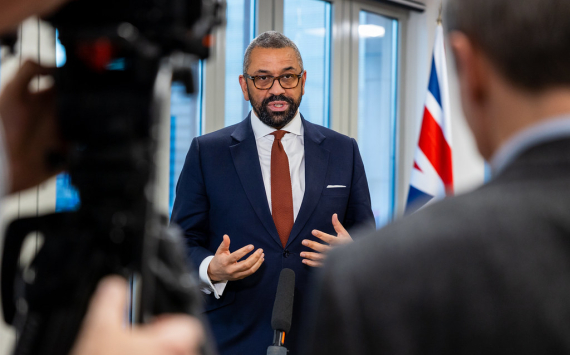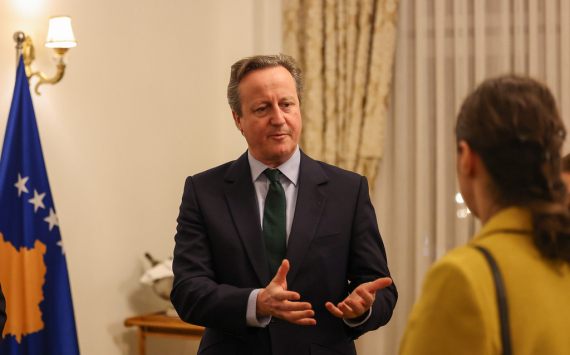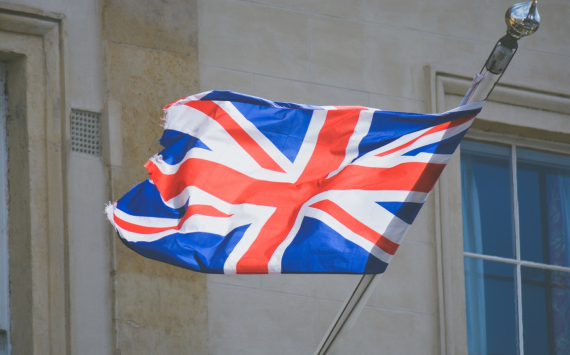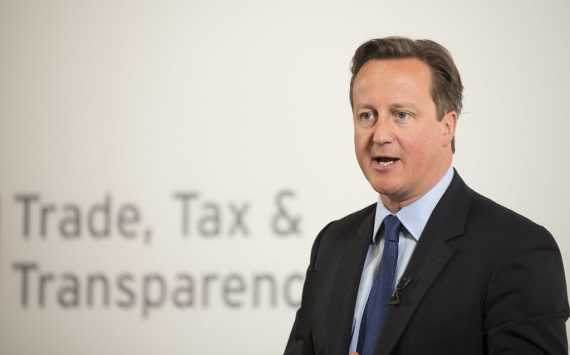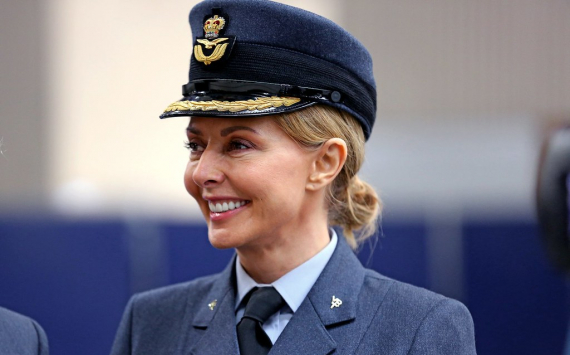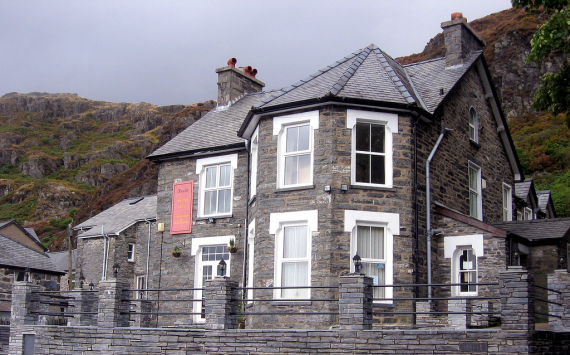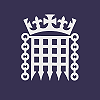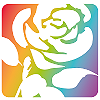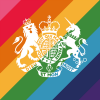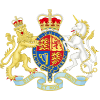- 1. Childhood & Early Life
- 2. Career
- 3. Major Works
- 4. Awards & Achievements
- 5. Personal Life & Legacy
- 6. Net Worth
- 7. Trivia
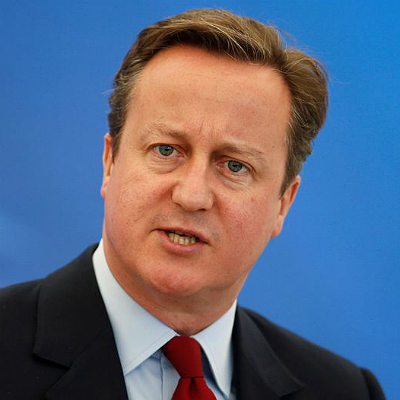
CAMERON
David
William
Donald
Former Prime Minister of the United Kingdom
Organization: Cabinet of the United Kingdom
Date of Birth: 9 October 1966
Age: 58 years old
Place of Birth: Marylebone, London, England
Height: 185
Zodiac sign: Libra
Profession: Prime Minister
Biography
David Cameron is a British politician who became the prime minister of the United Kingdom in 2010. The leader of the nation’s ‘Conservative Party’ and Member of Parliament for the Oxfordshire constituency of Witney, he ventured into politics in the late-1980s when he began working for the ‘Conservative Research Department.’ Born into a wealthy family in London, he enjoyed a privileged childhood and received his early education from premier schools. A bright student, he went to the ‘Eton College’ in Berkshire before proceeding to the ‘University of Oxford’ where he studied philosophy, politics and economics (PPE) at ‘Brasenose College.’ Following his graduation, he worked for the ‘Conservative Research Department,’ eventually becoming politically active. David Cameron worked as the Special Adviser to the Chancellor and then as Special Adviser to the Home Secretary following the Conservative Party’s victory in 1992. Cameron entered Parliament in 2001 and became the leader of the ‘Conservative Party’ after winning the December 2005 elections. His political career flourished over the years and he was elected the prime minister of the United Kingdom in 2010. Though initially popular, his party’s popularity suffered in 2012 and 2013. Despite the odds, he was re-elected in 2015. Following Britain’s decision to leave the European Union in June 2016, he stepped down as the prime minister on 13 July 2016.
Childhood & Early Life
- David Cameron was born on 9 October, 1966, in London, England. His parents, Ian Donald Cameron and Mary Fleur, were business leaders.
- He spent his childhood in Berkshire. He attended ‘Heatherdown School’ and ‘Eton College,’ finishing his early education in 1984.
- Graduating from ‘Oxford’ (Brasenose College) in 1988, Cameron received a first class degree in philosophy, politics and economics (PPE). While at ‘Oxford,’ he was a member of the exclusive and controversial ‘Bullingdon Club.’
Career
- Cameron's first job was with the ‘Conservative Research Department,’ the think-tank of the rightist party. He joined the group in 1988 and continued working there for three years. He then started working closely with John Major.
- Following the Conservatives' electoral victory in 1992, Cameron served as Special Adviser to the Chancellor and then Special Adviser to the Home Secretary.
- Between 1994 and 2001, he served as the Director of Corporate Affairs for ‘Carlton Communications,’ a British media company.
- Cameron entered Parliament in 2001. He courted greater visibility and sought to obtain a leadership role in the ‘Conservative Party.’
- Although he initially supported the ‘Iraq War’ in 2003, he also voted in favor of judicial inquiries into the war's prosecution.
- Michael Howard resigned as the party's leader after the 2005 general election. Cameron announced his intention to contest for the post and won the position on 6 December 2005, thus entering the ‘Privy Council.’
- As leader of the party, he expressed strong support for the ‘National Health Service,’ calling it one of the greatest achievements of the 20th century.
- Active in international politics, Cameron was crucial to the formation of the ‘European Conservatives and Reformists’ in 2009.
In the 2010 general election, the Conservatives secured 306 seats. Although it was the highest total, it was short of majority by 20 seats. This led to a coalition government between the Conservatives and the Liberal Democrats. - David Cameron was formally invited to assume office as the prime minister of Great Britain on 11 May 2010. He became the youngest prime minister in almost two centuries.
- During the formation of his cabinet, the new prime minister appointed the UK's first Muslim cabinet minister, Baroness Sayeeda Hussain Warsi.
- The prime minister lobbied strenuously for the United Nations’ intervention in ‘Libyan Civil War’ in 2011. In March 2011, the UK and the US fired over 110 Tomahawk cruise missiles to support Libyan rebels.
- The overall popularity of the ‘Conservative Party’ tumbled sharply in 2012 and 2013, with significant ground lost in local and council elections. This led to rumors of a vote of no confidence, but it never materialized.
- Although his government supported the revolutionaries fighting against the Syrian government, military action was blocked by parliament. The British Parliament had never vetoed a prime minister's call for military action.
- In 2014, he supported the successful ‘Better Together’ campaign at the Scottish independence referendum. He was also in favor of a campaign to retain the status quo in a referendum on changing the voting system. The referendum resulted in a 'No' to independence majority.
- In 2015, the Conservative Party registered a decisive win in the general election and David Cameron was re-elected UK Prime Minister with a majority in the Commons. He thus became the only second Prime Minister (after Margaret Thatcher) to be re-elected immediately after a full term with a greater number of seats to-date.
- The year 2016 was a decisive year in British politics. Following the results of the UK European Union membership referendum and the British public's decision to leave the European Union, Cameron announced his decision to step down as the Prime Minister in October 2016.
- In 2017, he was appointed president of ‘Alzheimer's Research UK’ to address misconceptions surrounding dementia and campaign for medical research funding to tackle the condition.
Major Works
His premiership has been marked by dealing with the after effects of 2008 financial crisis. He ushered in austerity measures and introduced large-scale changes to welfare, immigration policy, education, and healthcare.
Awards & Achievements
‘The Spectator Magazine’ named him 'Politician of the Year' in 2005. This honor signaled Cameron's rapid rise in UK politics.
In 2012, Cameron was presented with the ‘Order of Abdulaziz al Saud Medal of Excellence.’
Personal Life & Legacy
On 1 June 1996, Cameron married Samantha Sheffield in East Hendred. Sheffield is a friend of his sister; the two became acquainted during a family trip to Italy.
The couple's first child Ivan was born on 8 April 2002. He suffered from cerebral palsy and epilepsy and lived only for six years. This had a tremendous impact on the political leader’s life. He also started supporting the NHS after the incident.
The couple has three other children, two daughters and a son. During his prime ministership, Cameron received attention for taking paternity leave from his governmental duties for the birth of his second son.
Net Worth
Both David Cameron and his wife hail from wealthy families. His net worth is estimated to be around $50 million.
Trivia
He is fond of cycling, and regularly commuted via bicycle during his tenure as the leader of the ‘Conservative Party.’ This led to his bike being stolen twice, in 2008 and 2009.
Mentions in the news
Born in one day
(Horse) .
Horoscope Libra: horoscope for today, horoscope for tomorrow, horoscope for week, horoscope for month, horoscope for year.





